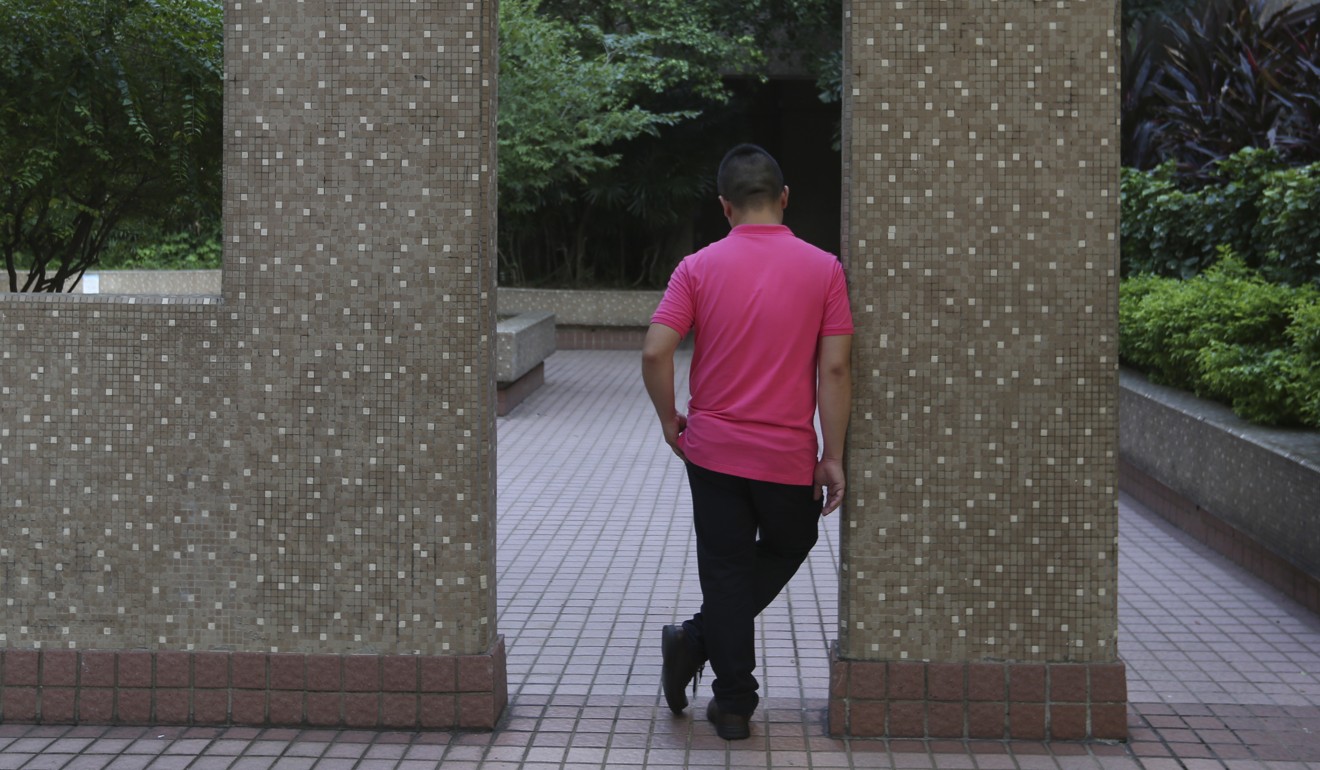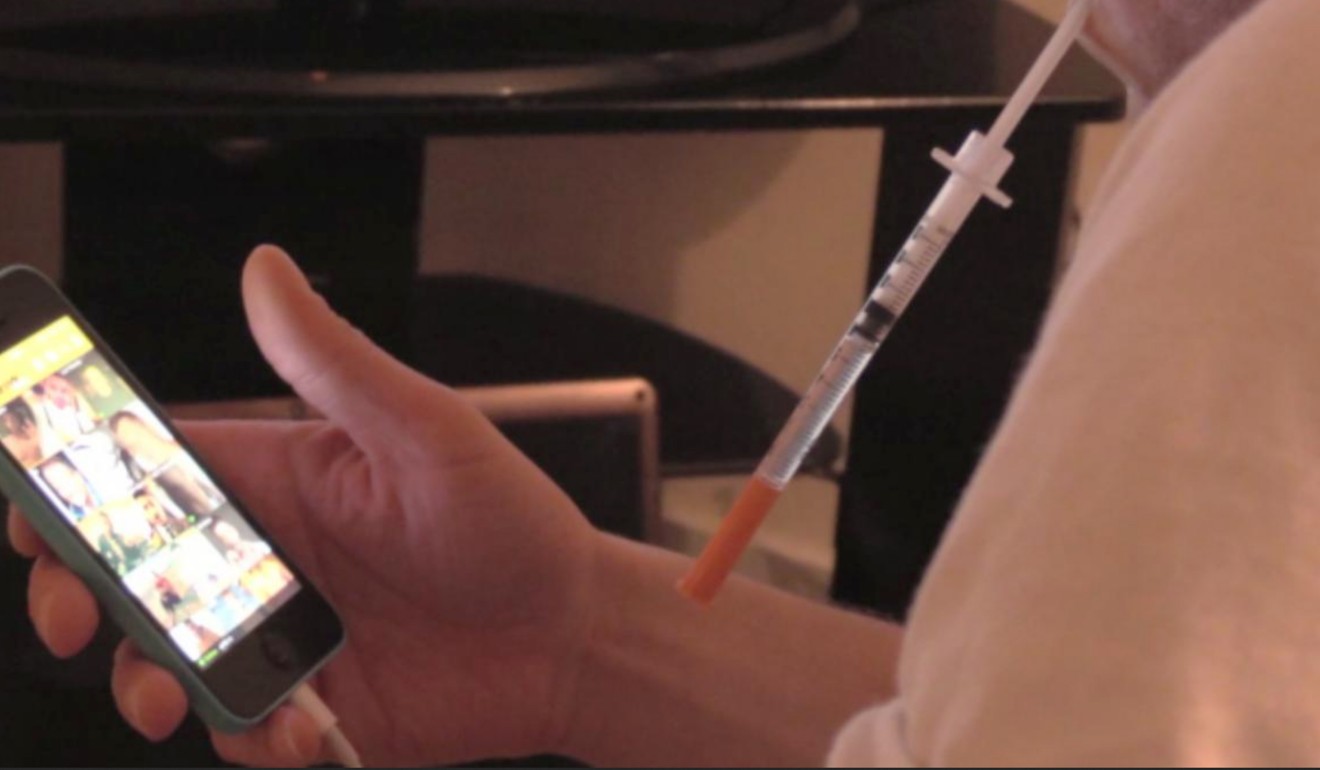Sex, Drugs and Gay ChemSex in Hong Kong
Years of hiding his sexuality from family and friends had left him wary of expressing his true feelings and worried that his true identity would not be accepted by those he loved.
Even this afternoon, when Jack has summoned the courage to reveal the most intimate aspects of his journey to a complete stranger, he feels the need to remain cautious.
Chemsex involves bingeing on drugs and having sex with multiple men. Drug availability and mobile apps make hooking up easy, but the risks include addiction, HIV and depression. We talk to victims and those trying to help
Hence the request to use “Jack” rather than his real name. And hence the fact that while he’s opening up verbally, Jack’s also clutching a large cushion tightly to his chest, as though there’s still a need to keep a layer of protection between himself and the world.
Jack is among a growing number of Hong Kong men caught up in a cycle of “chemsex” binges – with an array of drugs taken over days and sex with multiple partners – and the dark days that follow, when the drugs wear off and a fierce depression sets in. His longest sex-and-drugs session lasted 24 hours.
The 30-year-old started to seek help when – following a particularly intense weekend of drug taking and sex – a dispute with his boss led to thoughts of suicide and Jack found his life spiralling out of control.

“In 2015, I left the office and stood there thinking about walking onto the East Rail Line,” Jack says. “The cloud from the drugs was still there and I just couldn’t think logically. It was all based on emotion, and I had lost control of my emotions.”
The official numbers – supplied to the Post by the Department of Health – read that, among men who have sex with men, the prevalence of chemsex remained at around 11 per cent between 2011 and 2016.
“Poppers (amyl nitrate), drugs for erectile dysfunction and methamphetamine [Ice] are the top three common drugs used by MSM [men who have sex with men] in 2016, while gamma-hydroxybutyric acid [GHB] and ecstasy ranked fourth and fifth,” the department says.
You just want sex. The good feelings come up and it’s overwhelming
As well as the risk of drug addiction, chemsex between couples or at parties with multiple partners increases the risk of HIV infection, as caution is forgotten during the charged-up sex sessions.
“You don’t really think about condoms or even lubricant,” says Jack. “You just want sex. The good feelings come up and it’s overwhelming. Bad thoughts and bad memories just disappear. You find a place to escape … but it is short-lived.”
Jack – and others within the gay community the Post talked to – believe the numbers of those involved in chemsex in Hong Kong have risen over the past five years, due to the availability of the drugs and the continued rise in use of apps such as Grindr, which they say take the hard work out of hook-ups for sex. Personal profiles will include icons such as an ice-cream to let users know what the person is looking for.
“I started with chemsex in 2009, starting with poppers offered to me at a sauna in Mong Kok,” says Jack. “I found the feeling pleasurable and I could just enjoy myself and not worry. I became curious and wanted to try more and more. In 2011, I moved on to meth. It is easy with social media to find someone interested at any time of the week, if you want. There are people who will provide the drugs and the venue.”

The term “chemsex” was first derived by London-based Australian David Stuart, whose arrest on drug charges in 2005 led to his research into the problem – and to the opening of the world’s first chemsex support programme at a clinic in London’s Soho district. A 2015 documentary by digital media company Vice introduced the issue to a wider audience.
In an interview with Agence France-Press in July, Stuart said the term defined the “use of drugs for sex” and was associated with “certain behaviours such as hooking up online, high number of partners and high prevalence of HIV and sexually-transmitted disease”.
London is considered the world’s “chemsex capital” and Stuart estimated that, of the 7,000 to 8,000 gay men who use his clinic, “three thousand are using chems and are coming here with the consequences of chemsex”.
Stuart believes a common theme heard from many attracted to chemsex sessions – which can last for days and include multiple partners – is that they are searching for intimacy as well as escape. Jack agrees.

“I think it is about the stress,” says Jack, who reveals that although he has come out to his parents, they still expect him to marry a woman and have children.
“Stress, both in the gay community and outside of it. The gay community in Hong Kong is obsessed with being masculine, and fit, and they reject those who are a little bit sissy, obese or even overweight. People are obsessed with the outward appearance. But in chemsex it doesn’t matter. I felt like I could be who I was and not worry about what anyone else thought about me.”
Chau Chun-yam has assisted the gay community in his role as a social worker with The Boys’ & Girls’ Club Association of Hong Kong for the past 10 years. Two years ago the NGO reacted to a rise in drug addiction among gay men by starting a prevention and treatment programme. He has seen an increase in the number of gay men reaching out for help with the associated problems, and also with the desires that make chemsex an attraction in the first place.
“The rise in the number of gay men using drugs during sex was really first noticed in 2010,” says Chau. “The issue has been around for quite a long time, but it seems to be getting more serious. More and more people are using drugs, and networking apps have made it more visual in the gay community.
“Chemsex is not the same as drug abuse. People not only get addicted to drugs – they get addicted to the super high created by sex and drugs together.”
Chau and his team have set up their own account on Grindr to offer information and advice for those looking for help, including online and face-to-face counselling, while they are currently working with the University of Hong Kong on chemsex research.
“We try to increase the motivation for change,” says Chau. “We try to set up face-to-face counselling, try to support clients by finding out what kind of function the drugs provide for them and advise them on how they can restructure their lives. It’s like any addiction.”
Chau says there are common traits among those he has worked with. “Often they have difficulty coming to terms with their own sexual orientation. They have a strong sense of isolation and shame about their sexuality. A chemsex party is a way of connecting with people. It’s not a healthy way but it’s a substitute for the intimacy and acceptance they really want.”

Chau adds: “Chemsex is an artificial way of connecting with people. And the combination of drugs and sex can look attractive for a while, and give a sense of that connection. Drugs are initially used as a way to cope with the shame and loneliness they feel as gay men, but soon it becomes an even bigger problem that is difficult to quit.”
He says another common concern is the risk of HIV infection. “For many men with HIV, particularly those who are newly infected, chemsex is a way of escaping the stigma of being infected,” he says. “To help gay men quit chemsex, you have to be able to support them to accept their sexuality and HIV-positive status, and help them build positive relationships with others.”
Although there are obvious psychological forces at play – certainly in terms of addictions – the use of illicit drugs means chemsex falls under the remit of the Narcotics Division of the Security Bureau.
A spokesman for the Narcotics Division says the Hong Kong government has adopted a “five-pronged strategy” to deal with drug abuse – preventive education and publicity, treatment and rehabilitation, legislation and law enforcement, external cooperation, and research.
There needs to be strong motivation for change
“A 24-hour telephone helpline and instant messaging service manned by social workers are made available for people with drug problems, including hidden drug abusers and sexual minorities, to seek help,” the spokesman says.
Other initiatives include the Beat Drugs Fund, which “supports the organisation of anti-drug projects addressing the needs of different target groups, including those of hidden drug abusers and sexual minorities”.
But the law is the law, and if you get caught with illicit drugs, you’ll be arrested.
Jack says his struggle continues. He last dipped back into the chemsex scene a month previously and the fight against temptation is a weekly battle, particularly on weekends when he has time on his hands. But the desire to move on is strong, and that is the first step forward, according to Chau.
“There needs to be strong motivation for change,” says Chau. “But people need also to know that there are people willing to give them the support they need.”
South China Morning Post
This article appeared in the South China Morning Post print edition as: BAD chemi s try


Comments